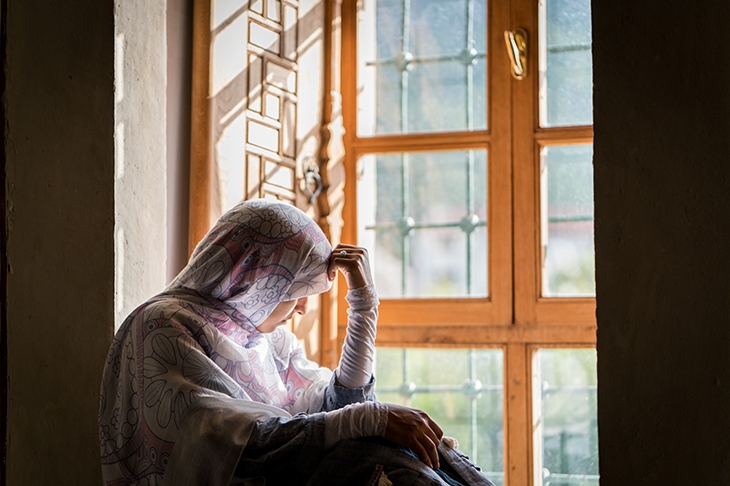The Moroccan-born Leïla Slimani has made her name writing novels of propulsive intensity. Lullaby, the story of a nanny who kills the two children in her care, was the first to be published in English (it was also the most read book in France in 2016). Adèle, about a sex addict who takes little pleasure from increasingly violent and self-destructive sexual encounters, came next. It was while on a book tour of Morocco discussing Adèle that Slimani hit on the idea for Sex and Lies.
Many young women approached her at readings, wanting to tell her about their own sexual experiences, and it is these stories — that ‘shook me, upset me, that angered and sometimes disgusted me’ — that she has collected in this slim volume. In her introduction, Slimani references Scheherazade and says it is ‘because she reclaims her right to tell her own tale that she becomes not merely the object but the subject of the story’. Slimani also pays tribute to the courage of her interviewees in overcoming hshouma (shame) to speak about their experiences.
There is plenty of horror here. A radio presenter mentions a 13-year-old girl who called in, explaining that her father had married her to one of his mates. The girl said: ‘I want to go to secondary school and play with my friends. Can you call my husband? I would really like to satisfy him but he doesn’t want to touch me.’
There is also much baroque detail — a fatwa, for instance, banned women from touching bananas and cucumbers because they look like the male sex organ. Much of this is fascinating, but since Slimani sets no boundaries around her study, it is hard to know what it all amounts to.
In the same way that Lisa Taddeo’s bestselling Three Women, published last year, was criticised for showing only a partial view of female sexuality (the women were all white, under 40 and predominantly straight), one can’t gain much of an overview of Moroccan women’s sexuality from these pages. Perhaps because the stories are told in the women’s own words, they don’t live in quite the same way as Slimani’s fiction does. But the author deserves credit for giving a voice to those for whom ‘just being myself is activism’.






Comments